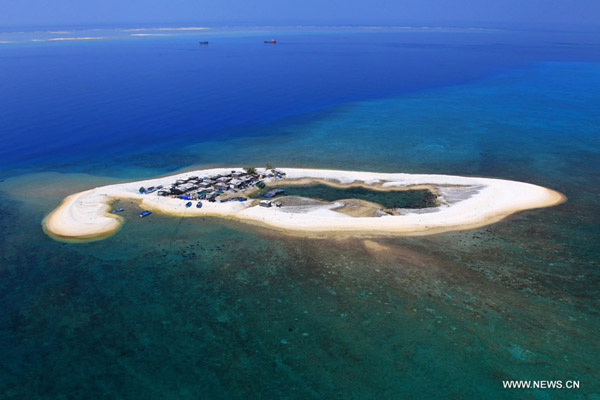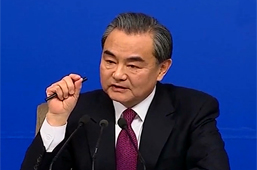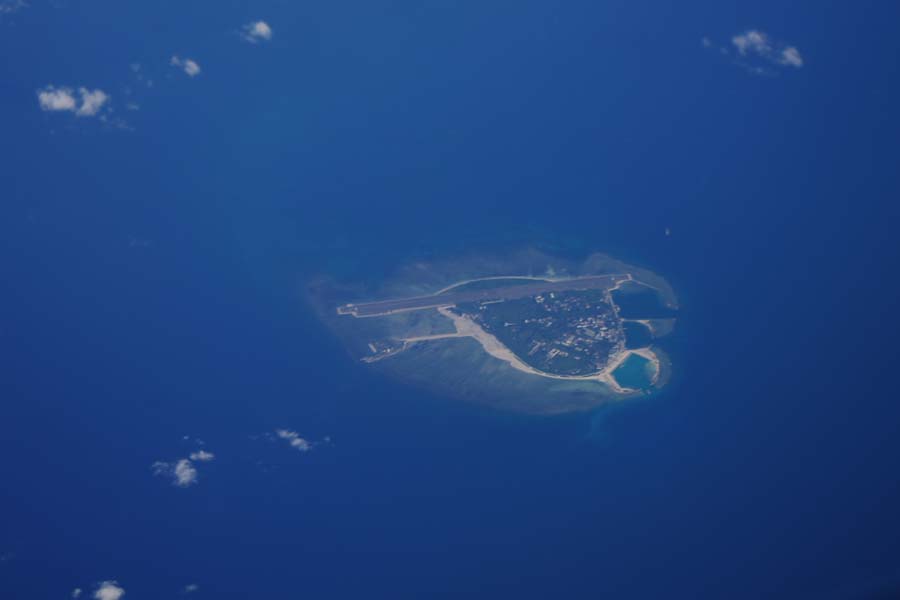
This bird eye view shows the coral reefs in China's Xisha Islands, South China Sea. [Photo/Xinhua]
For years, the United States has played the role of troublemaker in the Asia-Pacific region, constantly making waves over regional maritime disputes to sow the seeds of conflict. Both the "pivot to Asia" strategy of the Barack Obama administration and the current "Indo-Pacific strategy" have been tailor-made for that purpose.
To justify its actions, the US accuses China of being aggressive. In the latest of its allegations, Carlos Del Toro, secretary of the US Navy, in an interview with the Associated Press in Manila on Tuesday, said that any Asian aggressor who violates the sovereignty of other countries in the region risks punitive counter actions.
The US has been employing such rhetoric for so long that it doesn't even need to mention China by name, everyone knows that's the country the finger of blame is being pointed at.
One day prior to Del Toro's ill-intentioned remarks, officials from China and members of the Association of Southeast Asian Nations shored up the important regional consensus that peace and stability in the South China Sea should be firmly held in their own hands at a symposium in Beijing.
In the meeting commemorating the 20th anniversary of the signing of the Declaration on the Conduct of Parties in the South China Sea, the participants agreed that China and the ASEAN countries should focus on cooperation, continue to follow the dual-track approach in dealing with issues related to the South China Sea, and look forward to an early conclusion of a Code of Conduct for the waters.
Del Toro's intention is to heighten tensions over the regional disputes as the US does not want to see the current peaceful situation in the South China Sea, which has been a hard-won result from joint regional efforts in recent years.
The US should stop its malicious attempts to exploit the regional maritime disputes for its own ends and act in accordance with regional countries' desire for peace and stability in the South China Sea. It should respect the efforts countries in the region have made and are making in this regard.
Only if the South China Sea remains peaceful and stable can regional countries enjoy a sound environment for development. Forces from the outside region, the US in particular, should not sabotage the joint efforts that are being made to promote shared development and improve the lives of people in the region.
By trying to make a connection between what has unfolded in Ukraine and the South China Sea, Del Toro's remarks in the Philippines also highlight that the US is trying to draw the flames of war to the Asia-Pacific.
Countries in the region should guard against such an ill move and oppose any attempts by the US to undermine peace and stability of the region and the current prospects for regional development.















